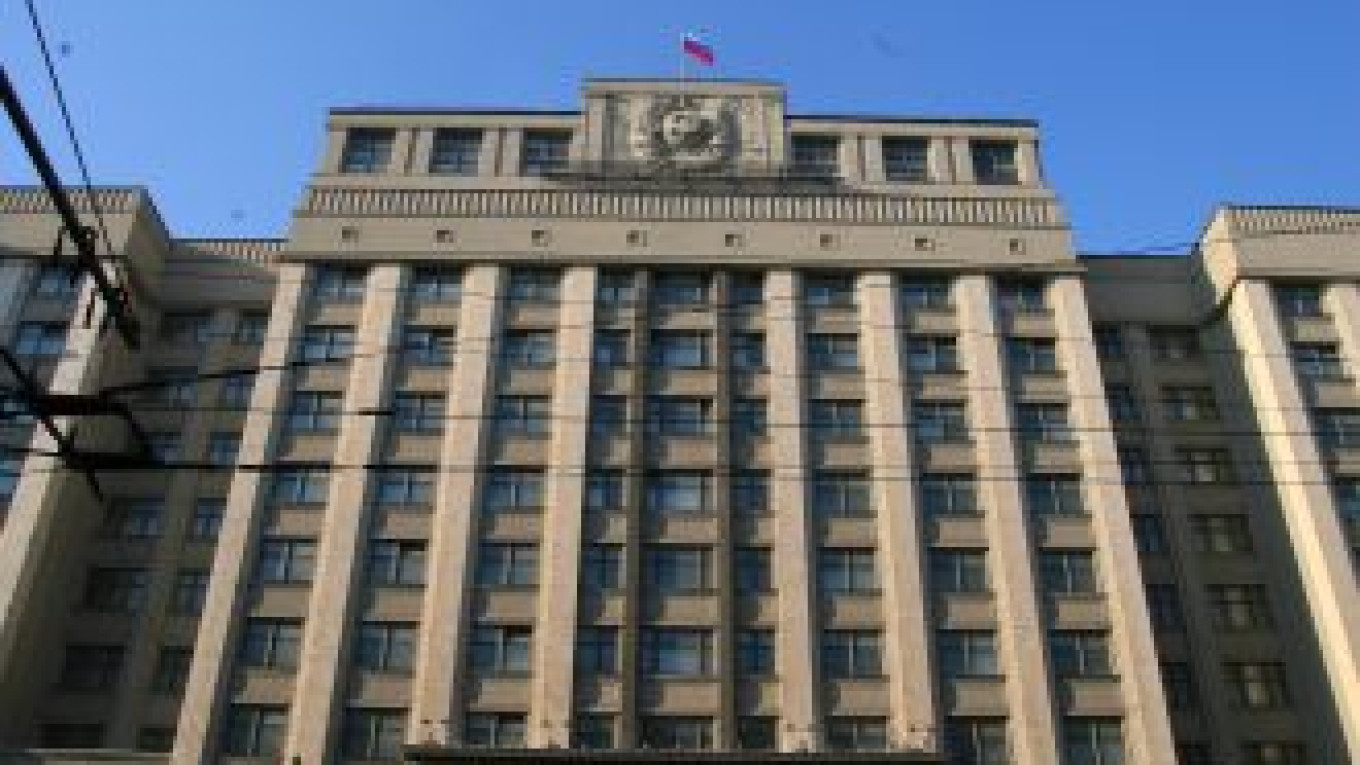State Duma deputies on Wednesday introduced a bill to punish blasphemers with fines up to $16,000 or years behind bars.
Offending religious believers would warrant up to three years in prison or a 300,000 ruble ($9,600) fine, co-author Yaroslav Nilov, head of the Duma's Social and Religious Organizations Committee, told Interfax.
Desecration or destruction of objects of worship would mean up to five years in prison or a 500,000 ruble ($16,000) fine, he said.
Such acts are currently considered administrative offenses punishable by a fine of up to 1,000 rubles ($30).
The bill would also make it an administrative offense to publicly "profane" religious literature or symbols, warranting a maximum 50,000 ruble fine, said Nilov, who represents the nationalist Liberal Democratic Party.
In a joint statement Tuesday that paved the way for Nilov's bill, deputies of all Duma factions described a growing attack on Russia's "centuries-old, spiritual-moral foundation" aimed at discrediting traditional values, arousing civil discord and undermining the country's sovereignty.
The measure appeared to have the public's backing, with 82 percent of Russians supporting harsher punishments for blasphemy, according to a survey this month by the state-run VTsIOM pollster.
Recent months have seen the attempted assassination of the chief mufti of Tatarstan, the felling of Orthodox crosses, vandalism against Orthodox churches and the jailing of three members of the punk band Pussy Riot for an anti-Kremlin performance in a Moscow church.
The Pussy Riot case received international attention and came amid what government critics describe as a general crackdown on dissent that has included increased fines for illegal rallies, searches and new legal cases against opposition leaders, and the criminalization of slander.
Several prominent opposition leaders denounced the anti-blasphemy bill as a violation of the constitutional right to free speech and a crude tool for punishing critics of the resurgent Russian Orthodox Church.
The bill is a "gross violation of the Constitution, which guarantees the freedom of opinion and speech, including harsh opinions about the church," said Vladimir Ryzhkov, co-founder of the opposition Party of People's Freedom, Interfax reported Wednesday.
"Interesting. Why aren't there any plans for a law that would ban offending the feelings of nonbelievers?" designer Artemy Lebedev quipped on his LiveJournal blog Tuesday.
"[Expletive] God," he wrote.
An Orthodox activist and a group of Orthodox believers told the Russian News Service on Wednesday that they would sue Lebedev for that remark.
A Message from The Moscow Times:
Dear readers,
We are facing unprecedented challenges. Russia's Prosecutor General's Office has designated The Moscow Times as an "undesirable" organization, criminalizing our work and putting our staff at risk of prosecution. This follows our earlier unjust labeling as a "foreign agent."
These actions are direct attempts to silence independent journalism in Russia. The authorities claim our work "discredits the decisions of the Russian leadership." We see things differently: we strive to provide accurate, unbiased reporting on Russia.
We, the journalists of The Moscow Times, refuse to be silenced. But to continue our work, we need your help.
Your support, no matter how small, makes a world of difference. If you can, please support us monthly starting from just $2. It's quick to set up, and every contribution makes a significant impact.
By supporting The Moscow Times, you're defending open, independent journalism in the face of repression. Thank you for standing with us.
Remind me later.


